While adding fall leaves to your compost pile is great in theory, there are a few leaves you should avoid composting.
Now that the weather has started to cool down, the trees are starting to drop their leaves. It seems like everywhere you look, the ground is covered in orange, red, green, and brown fallen leaves. Not only is it beautiful, it is also a great source of potential energy for gardeners!
Most people simply rake the leaves into piles and either dispose of them or bag them for local pickup. That is, of course, after jumping into the piles a few times!
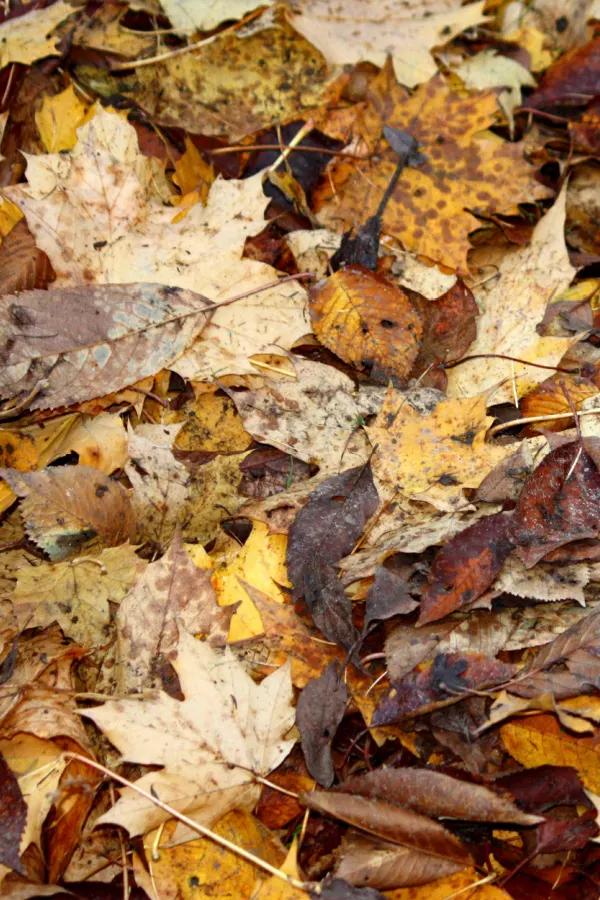
But if you garden or have flowerbeds, they can be put to use for more than just jumping into. Most varieties are perfect for adding to compost piles or for creating leaf mold with a few basic tips.
Unfortunately, just like not all trees are created the same, not all leaves are created equally either. It’s very important to know which variety you can use in abundance. There are also some you can use sparingly, and some you should avoid adding at all costs.
What Leaves To Avoid Composting
Since a tree’s leaves have up to 80% of its nutrients, they make a great addition to home compost piles. Not only do they help boost nutrient levels, but they are also a great source of organic matter as the leaves break down.
While most tree leaves are completely safe and great for home compost piles, learning which types of trees aren’t good for creating amazing (and safe!) compost is important. Not only can the wrong type of leaves slow down the decomposition of your pile, but some leaves can be harmful to your future plants and flowers as well.
For an in-depth look at composting leaves in general, check out “Composting Leaves, How To Make Great Compost From Leaves”. You’ll find everything you need to know to create amazing black gold using the resources around your home and property.
Now let’s get into what tree leaf varieties you shouldn’t use or ones that you should only use sparingly.
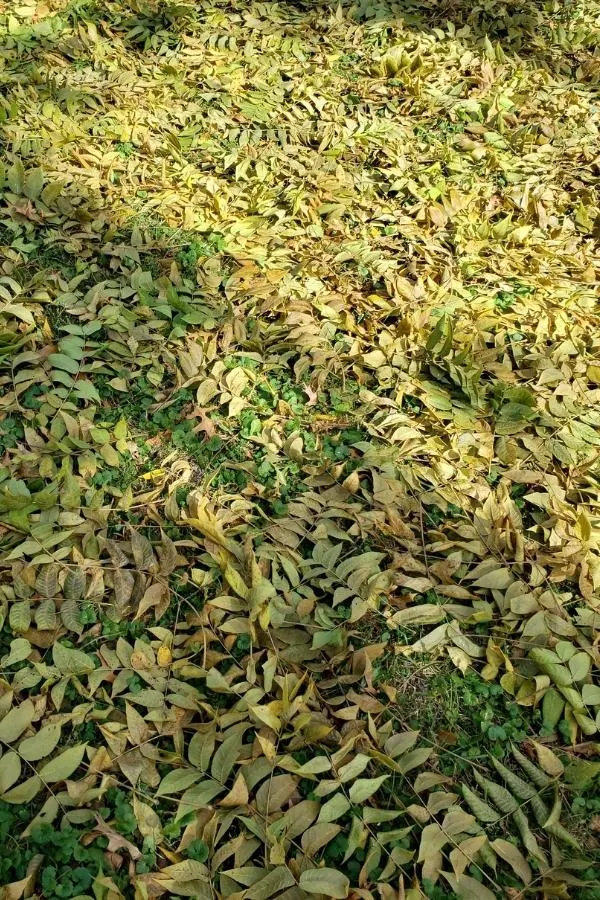
1. Black Walnut – Leaves To Avoid Composting
When it comes to gardening and growing plants, you should avoid black walnut trees at all costs. These trees excrete a chemical called juglone. This chemical is in the roots of the tree and also in their nut hulls, stems, and buds.
Juglone concentrates in high percentages around the tree’s canopy. However, you can also find small amounts of the chemical within the leaves. When you add the leaves to your compost pile, the juglone can break down as it decomposes.
As you go to use your finished compost the following spring, highly susceptible plants may fail to produce and thrive. In addition, any seeds you plant in soil that has been amended with compost that was created using black walnut leaves might fail to germinate altogether.
Vegetable plants like asparagus, cabbages, peppers, potatoes, and tomatoes are all highly susceptible. Lilacs, peonies, rhododendrons, and azaleas are also sensitive to juglone.
While some plants are more tolerant to juglone, it’s best to avoid adding black walnut leaves to compost piles just to be on the safe side.
2. Horse Chestnut – Leaves To Avoid Composting
Horse chestnut trees are a type of shade tree that produces esculin. Esculin is a toxin that concentrates in the brown-colored nuts, bark, buds, and leaves of horse chestnut trees.
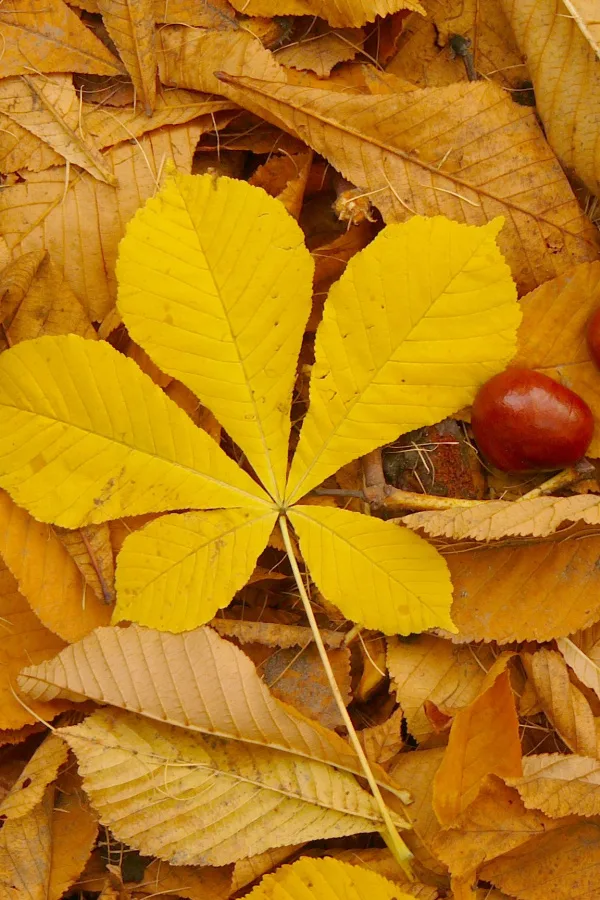
If you consume esculin in large quantities repeatedly over the course of several years, it can cause stomach issues, vomiting, and other issues. While you don’t directly consume the compost, it can be transmitted to the plants in small doses through the soil.
Because of this, it’s best to just avoid adding them to home compost piles. In addition, horse chestnut leaves take a long time to break down, slowing down your decomposition rate and delaying your use of that nutrient-packed black gold.
3. Beech – Leaves To Avoid Composting
Beech tree leaves have high amounts of lignin. Lignin is an organic polymer that is present in the bark, wood, and leaves of trees. The more lignin that is present within the leaves, the longer it takes for them to break down.
With home compost piles, you want to create an environment that can break down quickly and turn into that black gold that gardeners love and need. By adding a bunch of leaves with high levels of lignin, your compost pile decomposition will greatly be impacted.
Because of this, you should only use beech tree leaves in moderation. Try to not let them make up more than 10% of your leaf compost pile as a whole.
4. Oak – Leaves To Avoid Composting
Oak trees produce leaves that have a shiny, thick outer layer. Similarly to beech, they also have high levels of lignin. Due to this, they are extremely slow to break down and decompose.
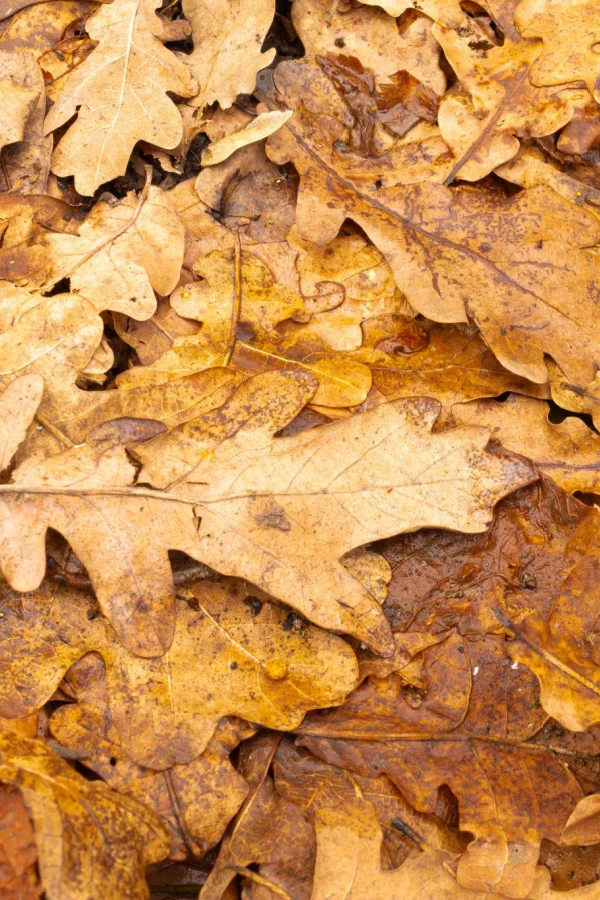
In addition to having high levels of lignin, oak leaves are also more acidic than other tree varieties. This can mess up the pH balance of home compost piles. Oak leaves also have lower levels of nitrogen and other nutrients that are really beneficial to homemade compost. So for best results, you should only have 20% of your leaf compost pile be oak leaves.
5. Holly – Leaves To Avoid Composting
Holly leaves are another type of tree that contain more lignin than the average tree variety. As mentioned above, lignin causes a delay in the decomposing of compost piles.
In addition, holly leaves are also lower in nitrogen and calcium levels. This makes them not all that helpful for creating nutrient-dense compost.
The entire goal of creating amazing compost is to have a product that is high in nutrient values and organic matter. So, it’s more beneficial to add tree leaves that can increase the nutrient levels of your compost. Either use holly leaves in moderation or avoid adding them altogether.
The Best Leaves To Compost
Now that you know what tree varieties to avoid composting or at least limit, what are the best tree varieties?
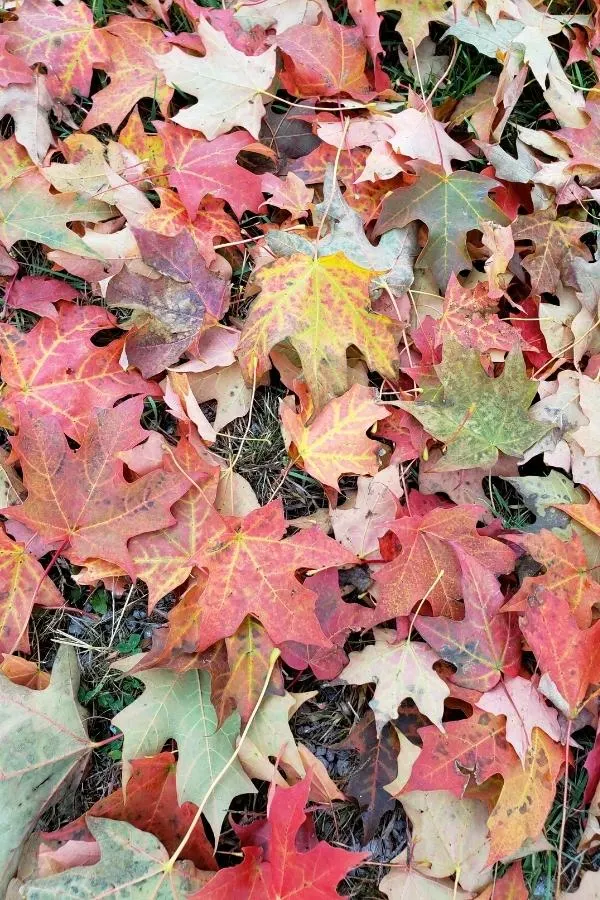
The top choices to include in home compost piles are maple, elm, ash, birch, cottonwood, poplar, cherry, and other fruit tree leaves.
These varieties have higher concentrations of nutrients within their leaves. All of those nutrients can then transfer into your finished compost piles. In addition, these leaves are able to break down quickly, resulting in completed compost fast.
These freshly fallen tree leaves are an excellent (free!) addition to any home compost pile – As long as you avoid using the above 5 tree varieties or at least keep some of them in moderation!
Follow Our Facebook Page For Even More Great Tips! Simple Garden Life Facebook Page
Simple Garden Life is a website dedicated to keeping gardening fun, simple and enjoyable! We publish two new articles each week along with a new garden podcast episode every two weeks. This article may contain affiliate links.
